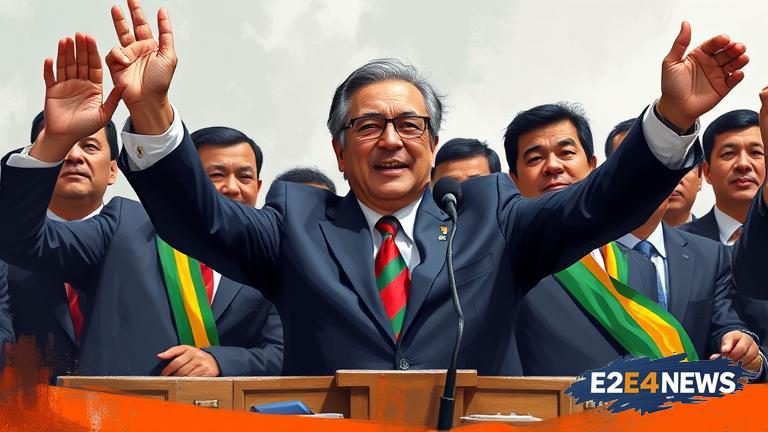The Bolivian presidential election has taken a fascinating turn, with centrist candidates emerging as frontrunners. This development is noteworthy, as it signals a potential radical shift in the country’s foreign policy. For years, Bolivia has been known for its leftist leanings, but the rise of centrist candidates suggests that the nation may be ready for a change. The centrist frontrunners, who have been gaining momentum in recent polls, have been vocal about their intentions to redefine Bolivia’s relationships with other countries. Their foreign policy proposals are being seen as a radical departure from the traditional stance of the country. The candidates have expressed their desire to strengthen ties with Western nations, while also maintaining good relations with other countries in the region. This approach is being viewed as a significant shift from the previous administration’s focus on building alliances with leftist governments. The centrist candidates have also been critical of the current government’s handling of foreign policy, citing a lack of diversity in the country’s international relationships. They argue that this has limited Bolivia’s ability to navigate the complex global landscape. In response, the centrist frontrunners have proposed a more pragmatic approach, one that prioritizes national interests and seeks to build bridges with a wide range of countries. This strategy is being seen as a welcome change by many Bolivians, who feel that the country has been isolated from the rest of the world for too long. The rise of the centrist candidates is also being driven by a desire for greater economic cooperation with other nations. Bolivia has significant natural resources, but the country has struggled to capitalize on these assets due to a lack of investment and infrastructure. The centrist frontrunners have pledged to address this issue, by seeking out foreign investment and promoting trade with other countries. This approach is being viewed as a radical shift from the previous administration’s focus on state-led development. The candidates have also been vocal about their commitment to democracy and human rights, which has resonated with many Bolivians. The country has a long history of political instability, and the rise of the centrist candidates is being seen as a positive development in this regard. Despite the challenges that lie ahead, the centrist frontrunners remain optimistic about their chances of winning the election. They have built a strong campaign team and have been effective in reaching out to voters across the country. The candidates have also been successful in building a broad coalition of support, which includes business leaders, civil society groups, and ordinary citizens. As the election approaches, the centrist frontrunners are poised to bring about a radical shift in Bolivia’s foreign policy. This development has significant implications for the region and the world, as it suggests that Bolivia may be ready to play a more active role in global affairs. The country’s relationships with other nations are likely to be redefined, and the centrist candidates have pledged to prioritize national interests in their foreign policy decisions. The rise of the centrist candidates is also being driven by a desire for greater transparency and accountability in government. The previous administration has been criticized for its lack of transparency, and the centrist frontrunners have pledged to address this issue. They have proposed a range of reforms, including the creation of an independent anti-corruption agency and the implementation of stricter campaign finance laws. The candidates have also been vocal about their commitment to protecting the environment and promoting sustainable development. Bolivia is home to significant natural resources, and the centrist frontrunners have pledged to ensure that these assets are managed in a responsible and sustainable manner. The country’s indigenous communities have also been a key focus of the centrist candidates’ campaign. They have pledged to recognize the rights of these communities and to work with them to promote their development. The rise of the centrist candidates is a significant development in Bolivian politics, and it has the potential to bring about a radical shift in the country’s foreign policy. As the election approaches, it remains to be seen whether the centrist frontrunners will be successful in their bid for power. However, one thing is clear: the country is ready for a change, and the centrist candidates are poised to bring about a new era in Bolivian politics.





